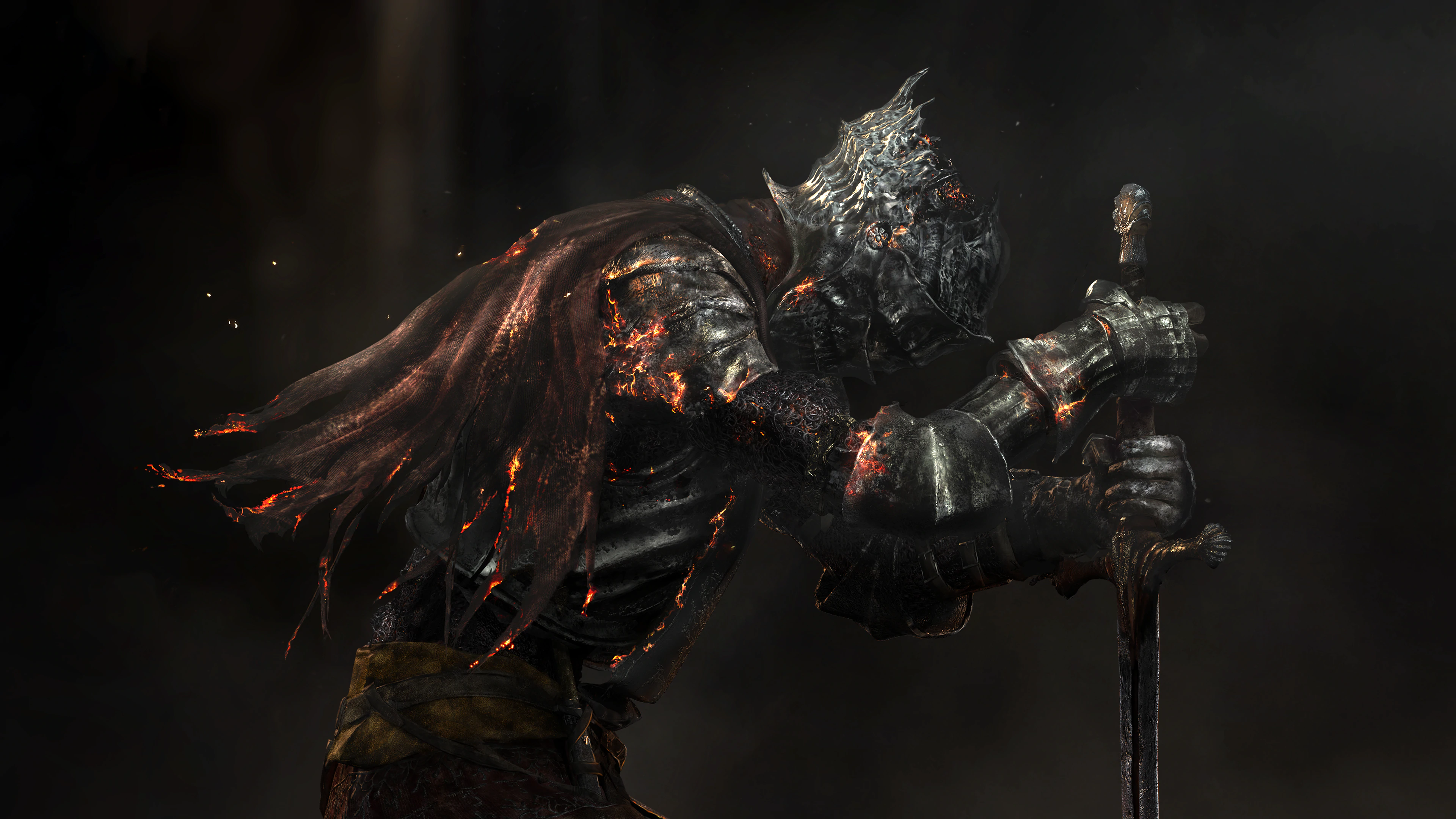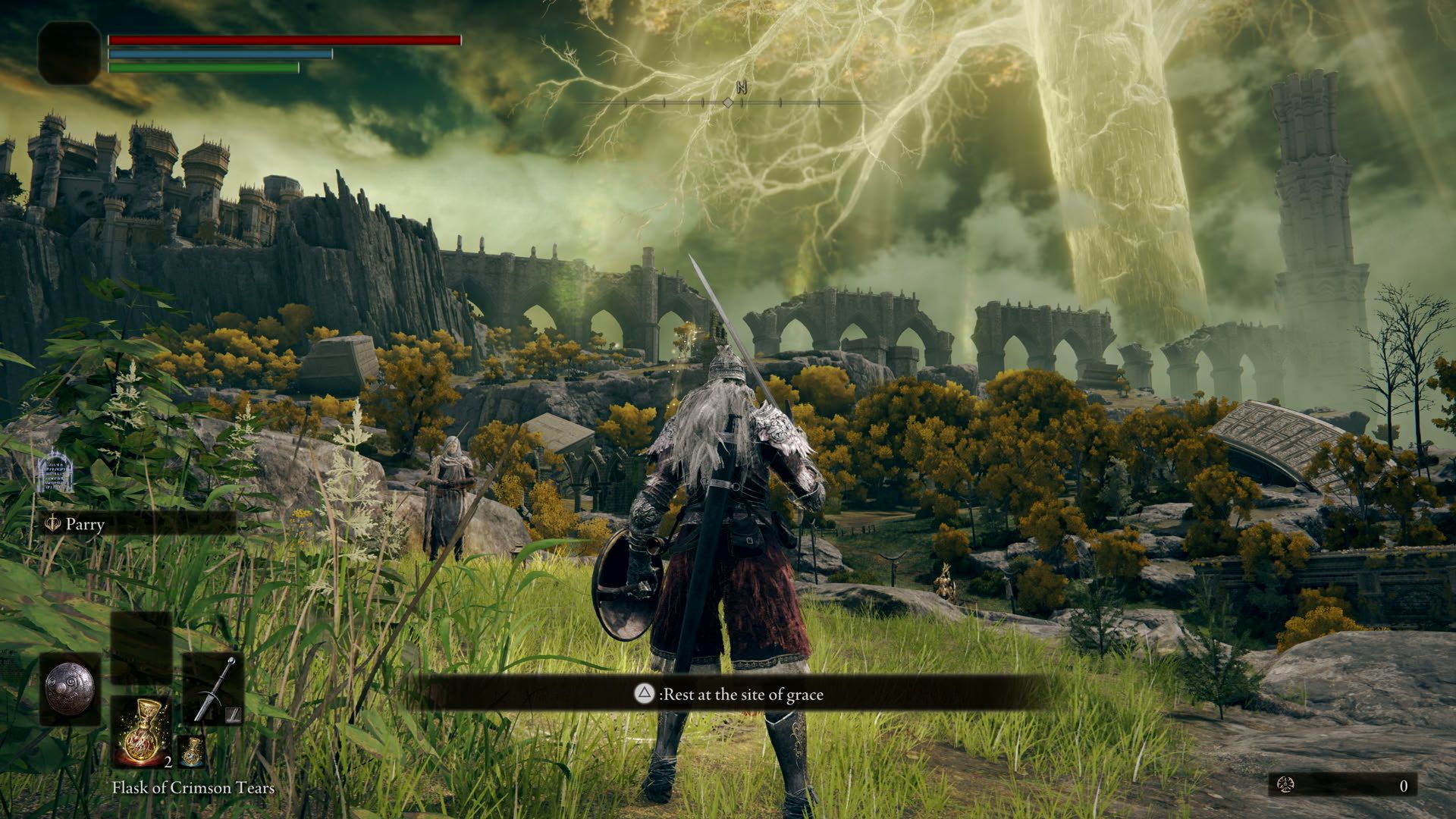Yet it doesn’t have to be this way.
“The things Souls games ask of players… are possible with the correct accessibility implementations,” said SightlessKombat on Twitter, a Twitch streamer without sight and accessibility consultant who worked on Horizon Forbidden West (watch him showcase the game’s CoPilot feature on Twitch). “I think an accessible Souls game is entirely possible.”
He added: “What always fascinates me though is why we haven’t seen an accessible mainstream game in the genre yet, even a side-scrolling proof of concept would be a start just to show that it could be done.”
So far, SightlessKombat has been unable to play the Souls games without sighted assistance due to a lack of accessibility options - or mods.
“It’s a shame to see this given how well-loved these titles are, but it’s also not exactly surprising given the lack of uptake on accessibility mods in general,” he told Eurogamer.
“That being said, with the number of overhauls, conversions and the like, I would speculate that it’s possible, it would just take a team of mod creators with a deep knowledge of the game and disabled consultants to make it work.”
From Software’s latest, Elden Ring, certainly seems to be the most approachable Soulsborne game, but it still lacks key features to make it truly accessible.
So, what might an accessible Souls game look like?
In his tweet, SightlessKombat mentions four key areas that Souls games demand of players: parrying, dodging, learning attack patterns, and navigation.
These elements can all vary per game, and of course the accessibility needs of players will vary from person to person. But broadly speaking, some key accessibility features could be implemented to assist with each.
“Navigation is arguably the most complex element to implement, unless it is accounted for from the earliest possible point in development,” says SightlessKombat.
Games such as Dead Space 2 and The Last of Us Part 2 include a feature where the camera is automatically turned towards your next objective, depending on context.
“The key element to making these features work well however is to make sure they account properly for pathfinding and routes the player can take through levels or areas,” he says. “With the Souls games being so open and explorable, it might seem like a daunting task, but even having the ability to set custom beacons could also be an answer to this.
“Additionally, audio description could help not only with allowing understanding of area layouts, but also give a sense of the atmosphere and visual aesthetic, which is what a lot of people seem to take away from these titles and focus on.”
For combat, it’s all about audio cues.
“The biggest combat accessibility element is actually not a direct feature, but a piece of inclusive design in the form of fitting and easy to understand audio cues,” he says. “For instance, when an enemy goes for a combo vs a single attack or an area of effect, each should sound different enough that you can learn them as you play and should be consistent.”
He cites Star Wars Jedi: Fallen Order as an example of a game that offers distinct audio cues based on attacks, so players instinctively know whether to block or dodge.
Speaking of dodging, haptic feedback could be one way to depict which direction players should be rolling.
“The big thing with dodging that most games don’t account for is conveying via audio, haptics or both which directions (if any) you are clear to move to,” says SightlessKombat.
“The only solution I found was to have a CoPilot tell me ‘clear left’, ‘clear back’, ‘clear right’, etc and move accordingly. Having directional cues (haptic or otherwise) that you can dodge would be extremely helpful and if players don’t want those they could be toggled on/off, much like any of the elements in this list.”
Lastly there’s menu navigation, which narration would solve.
“Selecting the desired option, whether in the character creator, during a decision, or even just to turn the music in a game down are all things that would be completely possible without sighted assistance, if only the games had menu or UI narration via text to speech implementation,” says SightlessKombat.
“Thankfully, we’ve seen that become gradually more common, but unfortunately amongst other elements, it doesn’t seem to have reached the Souls genre yet.”
So why is it that we’re yet to see features such as these implemented in Souls games?
“I think, or rather I hope, it’s just a lack of understanding of the need for accessibility in the first place,” says SightlessKombat.
“If, however, it is a belief that accessibility will compromise the vision of the creators, developers and publishers, then I point you to a tweet made by Cory Barlog, saying ‘Accessibility has never and will never be a compromise to my vision’.”
He continues: “Only by including more players can the industry move forward and if you solve for one scenario, say for navigation and traversal for gamers without sight, you can also extend to many (as these features could assist people with cognitive processing issues who may struggle to remember where to go).
“Regardless, I hope that those working on any Souls-like game understand that gamers without sight just want the same thing as everyone else: to be able to enjoy a challenge on our own terms, without having to get someone else in to guide us around, read menus, traverse the world and do any number of other things that currently require vision.”
And when it comes to difficulty, SightlessKombat believes that an inclusive way forward would be for players to craft their own experience using sliders around a single level of challenge. For instance, players could choose to have a small health pool and large damage output, or a large health pool with a more forgiving parry window, depending on the challenge they seek.
Really, accessibility is just about allowing all players to experience a game, be it the Souls games or any other games with well implemented accessibility features.
“The Souls formula always thrives on difficulty, but the most difficult thing of all for me is actually being able to have the experience that sighted gamers have had for so many years, unhindered by a lack of features that they need to get involved in the first place,” says SightlessKombat.
“If I could play a title in this genre from start to finish, on the hardest difficulty, without taking any damage and most importantly without any sighted assistance whatsoever, I would gladly do that in a heartbeat. We just need developers to be willing and able to make that happen.
“People have told me for years that ’not every game is right for you’ or ’not everyone is going to be able to play every game’. However, I am a firm believer that everyone should be able to decide on their own terms whether a game is for them, by being able to play those titles first hand ideally without any assistance whatsoever, through accessibility.”

